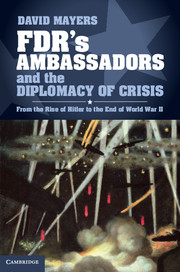4 - Middle Kingdom
from Part II - Victims
Published online by Cambridge University Press: 05 December 2012
Summary
Japanese armed forces waged war against China with scant restraint. The fate of Nanjing was not singular. Summary execution of surrendered soldiers, massacre of civilians, use of chemical-germ weapons, indiscriminate bombing of cities, and rape claimed millions of victims in China during 1937–1945. By some accounting, nearly nineteen million Chinese, of whom the overwhelming majority was civilian, died from hostilities or related causes (famine). No number has been placed on the maimed, homeless, or displaced.
Chiang Kai-shek upheld what passed for national authority in China. He was an admixture of Confucian votary, Christian convert, military leader, demimonde habitué, modernizer, autocrat, and Guomindang (GMD) operator. He contended for control with communists centered in Yanan's fastness, provincial warlords, Tokyo's Manchurian satrapy (led by Puyi), and a Japanese puppet regime in China-proper (led by Wang Jingwei). Independence-minded ethnic minorities, notably Moslem Uyghurs in Xinjiang, grew restive with Han rule. Compounding these difficulties, the better units in Chiang's army were demolished during the early months of combat in defense of Shanghai and other cities lying westward along the Yangtze. Thereafter, Chiang fielded weak armies. They were directed by lethargic or corrupt officers who did not scruple to trade – even their Lend-Lease equipment – with the Japanese. They abused their commands of undernourished and ill-clad peasant conscripts. The inferior training organized by such officers was matched only by their spendthrift attitude toward the lives of their men. Thus did China – plaything of imperial states since the nineteenth century, politically riven, constrained by economic and technological laggardness – face East Asia's preeminent power.
- Type
- Chapter
- Information
- FDR's Ambassadors and the Diplomacy of CrisisFrom the Rise of Hitler to the End of World War II, pp. 95 - 124Publisher: Cambridge University PressPrint publication year: 2012



